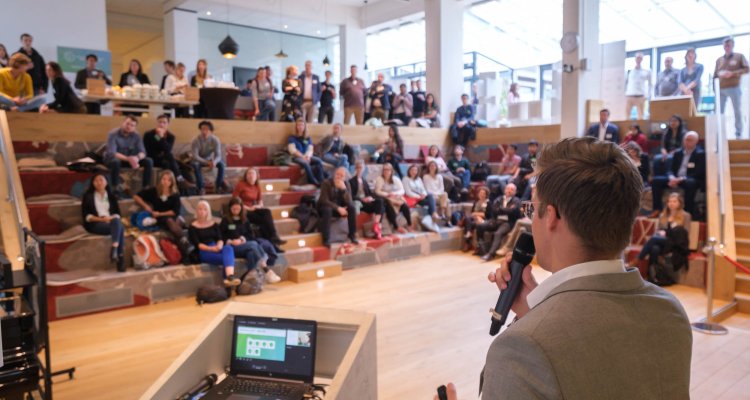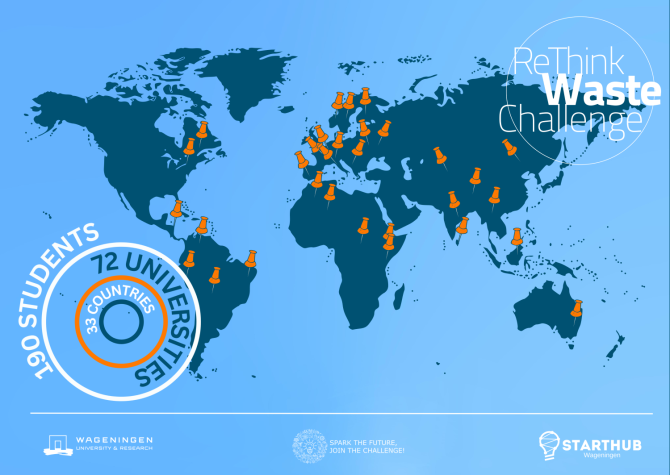
News
Nearly 200 international students contribute to a zero-waste future with the ReThink Waste Challenge
On 18 January, students will kick off the ReThink Waste Challenge, an international student competition looking for the next step towards a sustainable world without waste. The competing student teams will come up with their own business idea or prototype for a technology to reduce or reuse waste, create reusable materials, and contribute to a sustainable future.
Any waste is a loss. For the future of our planet, we can’t afford to lose much more. That is why the next Student Challenge focuses on creating a world in which resources are reused and reusable: a circular, biobased economy. This year, nearly 200 students from 72 universities in 33 countries joined the ReThink Waste Challenge to come up with new solutions. To compete, each team will look to reclaim natural resources from by-products or waste streams, for example, to propose new, reusable alternative materials. It is important to present these as viable business ventures. They stand to win up to € 6,000 and the chance to fully develop their idea.
Biobased textiles or sustainable asphalt
What kind of solutions are the students challenged to devise? Well, think, for example, of the heavy use of polyester in the fashion industry, which depends on a non-renewable resource: oil. Like Senior Scientist Sustainable Textiles Paulien Harmsen of Wageningen Food & Biobased Research, students might strive to prototype textiles based on renewable plant fibres. They might also create a business plan to make an existing alternative textiles financially viable.

Students might also look at research at Wageningen University & Research or successful start-ups. There are possibilities everywhere, from a sustainable ingredient for asphalt to a soda made from the fruit pulp that is discarded by the chocolate industry. The competing teams could draw inspiration from the research into alternatives for polyacrylates, an ingredient made from petroleum used in anything from diapers to paints. Researchers are extracting alternative ingredients from beet pulp to replace the polyacrylates in dishwasher tablets. A great example of circular, biobased research.
Support from Industry Experts
Students are not alone in their quest for the winning solution. More than twenty leading companies in industries such as agri-food, construction work, engineering consultancy, packaging and waste treatment are there to help them. They will introduce themselves at the Kick-off Event. In addition, participants will attend a lecture by Larissa van der Feen, Circular Economy Associate at WBCSD, on sustainable business practices. Tomas Turner, the co-founder of the start-up Cultivated, will introduce the students to the ReThink Waste Challenge as the start of an entrepreneurial journey. Cultivated won the 2021 edition of the ReThink Protein Challenge, so Turner speaks from experience.
During the coming month, the teams will work towards the first selection moment at the end of February. The teams that make it through will work to refine their concept, hoping to secure a place in the Grand Finals. They will participate in two Sprint Days and receive support from expert coaches who work for industry leaders and innovative start-ups. This new assembly of students from all over the world is on its way to learn from the best and show how they wish to change the future.